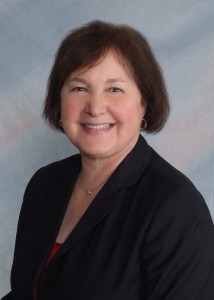NSU Newsroom
SharkBytes
Horizons
This version of NSU News has been archived as of February 28, 2019. To search through archived articles, visit nova.edu/search. To access the new version of NSU News, visit news.nova.edu.
This version of SharkBytes has been archived as of February 28, 2019. To search through archived articles, visit nova.edu/search. To access the new version of SharkBytes, visit sharkbytes.nova.edu.
The Importance of Recognizing Autism in Fully-Functioning People
Admission by Jerry Seinfeld Brings Issue to National Forefront

Susan Kabot, EdD, CCC-SLP, Executive Director – Autism Institute at NSU
Jerry Seinfeld’s recent disclosure that he thinks he has autism created quite a stir in the autism world and beyond.
I was not surprised at all.
After working with and meeting thousands of individuals on the spectrum, the wide array of symptoms never ceases to amaze me. That someone who is so accomplished felt the need to publicly make the statement that: “I think on a very drawn-out scale, I think I’m on the spectrum.” What a difference from 31 years ago, when I took my 3-year old son for a diagnostic workup at a major children’s hospital and was told that “the only thing we can guarantee is that he doesn’t have autism.” Why did they say that? Because back then, the picture of autism was very narrow – of a child sitting in the corner rocking, unresponsive to the approaches of other people, and nonverbal.
Today, adults who were never diagnosed with the disorder are coming to terms with the differences, and in many cases, struggles they have faced throughout life. It is not enough to be smart when you have autism. Yes, being academically capable is one element on the path to success, but it is not enough. As Jerry Seinfeld stated: “Basic social engagement is a struggle,” and we clearly live in a social world where being able to interact with fellow students, coworkers and people we meet on an everyday basis leads to success and a better quality of life.
Could we really diagnose Jerry Seinfeld with Autism Spectrum Disorder today?
The Diagnostic and Statistical Manual of Mental Disorders-5 speaks to requiring support in order to make the diagnosis. It doesn’t seem that for Jerry Seinfeld, as for many other successful people, there is a need to make the actual diagnosis.
What is important is that the general public recognizes that the spectrum of autism is quite broad and that although some people on the spectrum have gifts and talents that provide personal fulfillment, appreciation from others and self-sufficiency, there are many others who struggle to understand their social difficulties and the reasons for employment and marital failures, social isolation and other personal challenges.
Nova Southeastern University’s (NSU) continuum of educational programs and clinical services continues to provide not only early intervention for children as young as 15 months, but support for those who are academically capable who require more assistance to be successful in college. The wide range of professional training programs that educate future doctors and dentists, psychologists and family therapists, pharmacists, speech-language pathologists, occupational and physical therapists, audiologists and optometrists, and educators serves not only our local South Florida community, but reaches across the country and world.
Thank you, Jerry Seinfeld, for opening up our eyes to the struggles that even successful, gifted individuals on the spectrum face on a daily basis
###
The views expressed in this guest editorial are that of Sue Kabot, Ed.D., CCC-SLP, Executive Director, Autism Institute at NSU’s Mailman Segal Center for Human Development and are not necessarily those of NSU, its President or Board of Trustees.
Susan Kabot, Ed.D., CCC-SLP
Executive Director, Autism Institute
NSU’s Mailman Segal Center for Human Development
About the Author: Susan Kabot, Ed.D., CCC-SLP, is the executive director of the Autism Institute at Nova Southeastern University’s Mailman Segal Center for Human Development in Fort Lauderdale. She has spent the last 28 years there developing and administering programs in the area of autism. Her graduate training was in the areas of special education, speech-language pathology, and management of programs for children and youth. Susan is a Florida and Tennessee licensed speech-language pathologist and holds the Certificate of Clinical Competence from the American Speech-Language-Hearing Association. Susan is active in community autism organizations, serving on the Panel of Professional Advisors for the Autism Society and the Advisory Committee for the JAFCO Family Resource and Respite Center in Fort Lauderdale. She was appointed to the Florida Developmental Disabilities Council by former Governor Charlie Crist, where she is the chair of the Program Planning and Evaluation Committee and serves on the Health Care and Self-Advocacy Leadership Task Forces. Susan is also the parent of an adult son with autism.
Media Contact
Joe Donzelli
Associate Director, Public Affairs
954-262-2159
jdonzelli@nova.edu